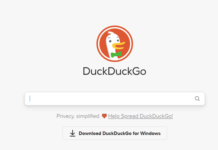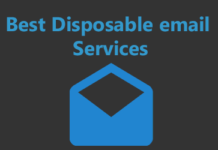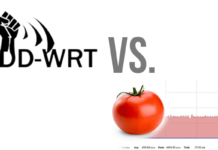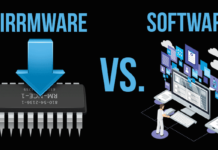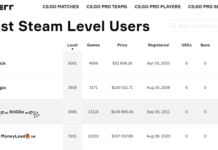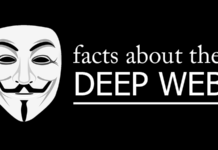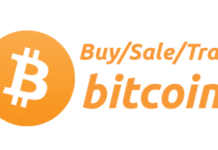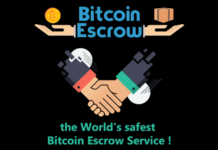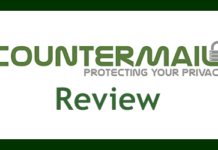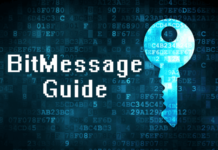Your search for Gmail alternatives is totally understandable. Even for some of you, this may be news but did you know Gmail can READ YOUR EMAILS! Not just “can”, they’ve accepted doing it vey actively to “personalize ads”.
Yeah, that’s like your postmaster reading all the letters that you send, or receive.
As of 2022, they’ve agreed to “stop doing it”. Obviously, I don’t personally trust Google. I’m sure you’ve got your doubts too.
If that’s the case, here are the best Gmail alternatives for you to keep your letters private.
How to Choose The Best Gmail Alternatives?
This list, and every other list on the web will have over half a dozen alternatives to Gmail. How then can you choose the best?
Well, here’s what you should look for in any e-mail provider:
- End to End encryption: This is the most secure form of encryption available to the common man. These are encrypted “end to end”, from you to the receiver. In other words, no one else, not even the e-mail providers or govt. agencies have any known way to read your contents.
- Jurisdiction: This decides what laws your e-mail provider has to adhere to. It’s best to choose a provider that’s based out of the U.S/UK and in some other privacy-friendly nation. Some good examples are Netherlands, Panama, Switzerland etc.
- Mobile apps: A lot of us have shifted to phones over computers, especially for e-mails. It’s best to go with a provider that has a modern & easy to use mobile app.
- Other advanced features: Some providers offer automatic email burning, multiple identities, PGP encryption, secure link sharing, custom domains etc. These are obviously the better choices, aren’t they?
- No log policy: Not all providers on this list agree to this. However, it’s better to go for those which do. The “no log” policy ensures your IP address, name, or other personal details aren’t required or stored while using the services.
Do note that we’re covering alternatives to Gmail here and not anonymous e-mail services. As a result, some of these e-mails may retain logs and data. However, everything here is still better than Gmail on some fronts.
Skiff – First Web 3.0 Decentralized Email Service
Website: https://skiff.com/
Skiff’s tagline reads- “Private, end-to-end encrypted e-mail”. For starters, they too are open-source so there’s full transparency.
End-to-End encryption, if not already clear, is what protects your e-mails on Skiff. All of this has been independently verified by third-parties as well.
This somewhat negates the fact that Skiff is based out of California, U.S.
One of its most impressive features is its Crypto connect feature. You can connect your crypto wallets so you can send/receive e-mails using your ETH, Solana and Cosmos addresses.
You can connect custom domains to your mail account. You can also create aliases for your e-mail.
Automatic replies can be configured as well. E-mails can be scheduled to be sent later as well.
It also has the “undo” feature in case you click the “send” button before you’re ready.
Yes, there’s a free forever plan. You also get Skiff Pages with all Skiff plans, this is like Skiff’s version of Google Docs. The content here too is encrypted end-to-end. It too supports versioning and live collaborators.
You can use Skiff on your computer, as well as on your Android and iOS phones.
| Pros: | Cons: |
|
|
Mailfence
![]() Website: https://mailfence.com/
Website: https://mailfence.com/
Mailfence has fewer bells and whistles than the other two Gmail alternatives we’ve discussed so far.
However, as long as you seek an e-mail provider that doesn’t play with your security, it pretty much does the job.
It obviously is End-to-End encrypted else it wouldn’t be mentioned this high on this list. It doesn’t display ads and or place any trackers.
On top of E2E encryption, it also has abandoned all U.s certifications making sure there’s no govt. intrusion.
The company is based out of Belgium which is one of the more privacy-friendly nations on the planet.
The interface you get is quite modern, easy to use as well as understand. Yes, there’s a forever free plan which offers 500 MB storage.
Custom domains too are supported. You can also set separate aliases (identities) depending on your package.
It does have a mobile app although in my opinion it needs to be upgraded. Do note that it’s not a “no log” provider. While your personal data isn’t shared with third-parties, it’s collected.
Get your Anonymous and Secure Email Inbox with MailFence
It also includes a document feature that lets you create and share documents with others.
| Pros: | Cons: |
|
|
CounterMail – Invite Only Email Service
Website: https://countermail.com/
CounterMail has been serving as a Gmail alternative from before people even knew they needed any such thing.
It too offers end-to-end encryption for starters. It’s also based out of Sweden which is pretty acceptable.
CounterMail uses diskless servers instead of those with HDDs. This makes sure data isn’t stored permanently.
It anonymizes the e-mail headers as well so they don’t reveal information about you, especially your IP address. You can also use custom domains.
Autoresponders can be configured as well. It also has built-in protection against common attacks such as MITM (Man in the Middle).
CounterMail also offers an in-built password manager. It basically is an encrypted vault you can use to store your passwords.
One of CounterMail’s strongest features is its 2-FA based on USB keyfiles. You basically can add a file as your keyfile. This file will be required each time you wish to login to your account.
The only problem with CounterMail? It’s an invite-only platform. You can only register if you have an invite-code. The invite-code is only shared with people who already have a CounterMail account. Meaning, you must know someone with a CounterMail account.
An Android app does exist but if I’m being honest, it’s not the best.
P.s-> I’m unable to share my invite codes here as those limited and I’ve already shared it with friends of mine.
| Pros: | Cons: |
|
|
Protonmail
Website: https://proton.me/
Proton Mail has more than one reasons for being on this list. For starters, it’s end-to-end encrypted. They don’t just claim it. The Proton Mail code is completely open-source and has even been audited.
Absolutely no personal details are required during sign up.
Then, it’s based out of Switzerland. As mentioned earlier, it’s one of the best locations for anything that requires privacy.
Let’s get the Elephant out of the room? Yes, it’s completely and forever free. Paid options are available but completely optional. The free plan doesn’t compromise with any security feature in any way.
It even has in-built PGP encryption as well as anti-phishing measures should you need it. You can also enable 2-FA for your account.
Did you know your govt. may at times restrict you from accessing secure means of communication? In those instances, Proton Mail apps are capable of routing the connection via alternate routes to ensure you can access your e-mail.
You can also set a password (for mails to non-Proton users). It also lets you configure auto-responders. E-mails can also be set to self-destruct after being read.
Custom e-mails are obviously available. You can also create multiple identities in the same mail box (smithwork@protonme.com/ smithnetflix@protonme.com etc.).
The interface is extremely modern, easy to use and feature-rich. It has native apps for both Android and iOS.
Moreover, it can also function as a bridge. Meaning, you get to use your favourite e-mail provider while Proton encrypts the mail before sending you the mails. Scheduling these e-mails too is possible.
The other reason I love Proton Mail is its free add-ons. It offers its Google Drive alternative– Proton Drive (E2E encrypted) and even a 100% free VPN, even to its free users.
Get Your Anonymous Mailbox With Proton.me
Ah yes, there are no ads. Not even on the free plan.
| Pros: | Cons: |
|
|
Private Mail – Most Secure Mailbox
![]() Website: https://privatemail.com/
Website: https://privatemail.com/
Private Email is a service in collaboration with Namecheap. Namecheap is one of the biggest and most privacy-friendly domain registrars and server providers on the planet.
Technically, Private Email is best suited for your businesses. Although, you totally may be looking for a Gmail replacement even though you’re a business owner.
It provides a full secure suits that includes a calendar, task manager, contacts etc.
It supports custom domains too if you need them. It even includes a storage space called Drive, a spreadsheet tool, as well as a real-time Google Doc-like text processor.
| Pros: | Cons: |
|
|
Zoho Mail
Website: https://www.zoho.com/mail
Most of you have probably heard of Zoho Mail. It’s one of the largest companies in the industry and they offer everything, mails, productivity suits, IT management and a lot more.
Anyway, their e-mail services are very often and frequently used as a Gmail replacement.
Do note that they do not offer E2E encryption. However, mails are encrypted at rest and in transit. This does mean they’re extremely secure and access to them is almost impossible.
You do get to setup custom domains. E-mails can also be protected using a password. It even has an “email recall” feature, you can basically unsend an e-mail.
It does have this productivity feature which lets you create notes and tasks within your webmail.
Mobile apps for both Android and iOS are available. They even have a migration assistance feature, you can bring in accounts from other providers.
| Pros: | Cons: |
|
|
Tutanota
Website: https://tutanota.com/
Tutanota is without doubt one of the first choices for many seeking an alternative to Gmail.
It too doesn’t ask you for personal information while signing up.
The company is based out of Germany. Sure, it’s not as privacy-friendly as Netherlands or the Swiss but it’s better than U.S/U.K and other similar nations, isn’t it?
You get custom domains as well as aliases. You can also add additional domains/aliases to your account if you pay extra.
Talking of payments, there’s a forever free plan you can use. The only condition? Accounts are permanently deleted if not logged in for 6 months.
They also offer a white-labelled solution. Get your own colours & logos for just EUR 1.00/month.
You can also embed an E2E encrypted contact form on your website. It does have apps not just for your mobile phones but also computers.
You sure can password protect your e-mails should you want to. Encrypted address books and calendars are some of its other features.
You can also set autoresponders and even use e-mail templates!
| Pros: | Cons: |
|
|
Posteo
Website: https://posteo.de/
Posteo is something new even to me. It caught my attention primarily because it checks most boxes you may be looking at.
It doesn’t collect or log data such as IP addresses. Doesn’t ask for personal information during sign up either. The company is based in Germany.
All payments (even fiat) is automatically anonymized. It’s not linked to individual accounts.
It also strips emails sent by you so that they do not contain any identifiable data against you. It doesn’t display any ads on the website, or webmail.
Aliases are of course supported. Calendars and address books exist and are encrypted.
It has this unique feature which protects you from unauthorized mail deletions. Whenever mails are deleted from your account in bulk, you’re notified and can request a backup of the deleted emails.
2-FA is available and can be optionally setup.
It does support E2E encryption but requires a third-party add-on called Mailvelope.
Also, if you care, it’s a very “green & caring” company. What I mean is, they offer 100% vegetarian lunch to their employees, never use flights, donates heavily to NGOs and so on.
The interface is pretty basic but can be worked with. They use Roundcube.
It’s not free though and costs EUR 1.00/month. A 14-day refund policy does exist.
| Pros: | Cons: |
|
|
Frequently Asked Questions (FAQ)
Here are a few FAQs you may have even about the best Gmail alternatives:
Is there a safer email than Gmail?
Yes. Protonmail is more secure than Gmail. In fact, any e-mail alternative to Gmail that’s “end to end encrypted” is safer than Gmail, which isn’t.
Are free Gmail alternatives Secure?
Yes. Not everything that’s free is a red flag. Each of the services mentioned are 100% free and yet they’re secure.
What is the Best Android Email?
In terms of security, user interface, and features, I’d say Protonmail and Skiff.com are the best. Both of these also have their own iOS apps.
Conclusion:
Before I sign up, let me give you a clear answer Privatemail Protonmail Mailfence, Skiff.com, Countermail.com is the best replacement for Gmail. It can be followed by Tutanota in terms of privacy & security.
Although, if you’re okay with giving up absolute privacy, even the non-E2E encrypted options here are very impressive.
Zoho Mail, Skiff Email, Posteo and the others wouldn’t disappoint you in any way. I’d recommend start with Mailfence, see what it offers and then try the others out? It’s 100% free forever anyway so you aren’t losing anything, are you?
